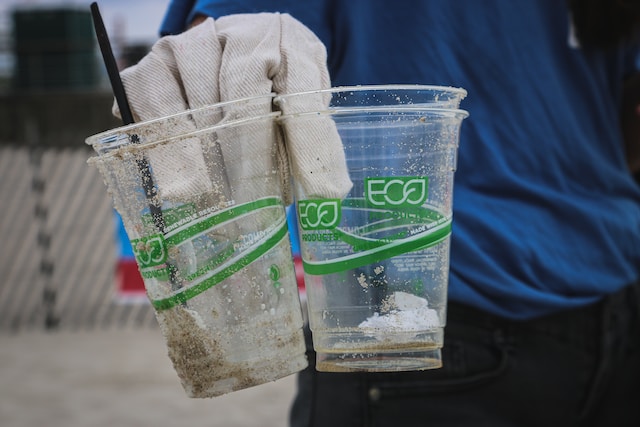Celebrating Sustainable Businesses – Planet Mark Awards 2025
The eighth annual Planet Mark Awards recognised businesses committed to making a difference through their own sustainability journeys. Planet Mark is a...
Read Full Article
ThisWeekinFM Partner Planet Mark explains how greenhushing can have the same adverse effect on an organisation as greenwashing.
The crackdown on greenwashing by governments on some of the world's largest brands has led to organisations deliberately underreporting their climate efforts to avoid scrutiny. Greenhushing is the new “buzzword” that refers to exactly this - the act of downplaying or concealing positive environmental practices or achievements.
Greenhushing can be just as damaging as greenwashing, as it can lead to a lack of transparency and accountability in sustainability reporting.
In this piece by our partners at Planet Mark, we will take a closer look at greenhushing and share tips on how to prevent it.
Greenhushing is the opposite of greenwashing. Instead of exaggerating environmental claims, it involves concealing or downplaying them. Greenhushing is practised by organisations for several reasons, including:
Greenhushing can take many forms, such as:
Downplaying or concealing your positive environmental practices or achievements can leave key stakeholders in the dark about your environmental impact. This lack of transparency can erode trust and confidence in your organisation's sustainability efforts and damage its reputation.
Furthermore, it can prevent stakeholders from making informed decisions about your products or services. Consumers are increasingly environmentally conscious and looking for sustainable products and services that align with their values. By concealing or minimising positive environmental practices or achievements, your organisation may miss out on opportunities to attract and retain environmentally conscious customers. With over 70 per cent of consumers considering sustainability in their purchasing decisions, organisations need to recognise the dangers of greenhushing and take steps to prevent it.
"Downplaying or avoiding an effective transition towards becoming a sustainable business can create poor environmental reporting practices, which makes it difficult to track progress towards sustainability goals and identify areas for improvement."
Alongside the negative impact on stakeholder trust and reputation, greenhushing can have broader consequences on the environment. Downplaying or avoiding an effective transition towards becoming a sustainable business can create poor environmental reporting practices, which makes it difficult to track progress towards sustainability goals and identify areas for improvement.
Lastly, it's vital for organisations to openly communicate their sustainability efforts and achievements to inspire others to join the race to zero.
Your organisations can serve as an inspiration for others in your industry to join the climate race. With increased awareness of the importance of sustainability, organisations must take the lead and set an example for others to follow. This, in turn, can lead to long-term benefits for the organisation, such as increased brand positioning as you become a sustainable leader within your industry. Therefore, organisations should focus on implementing sustainable practices and communicating and showcasing their efforts to the public.
The first step in preventing greenhushing is to recognise its existence and the potential damage it can cause. Transparency and accountability are essential elements of sustainability reporting. Here are a few measures that organisations can take to prevent greenhushing:
An effective sustainability reporting framework will give your organisation a clear understanding of how it is contributing to sustainability by outlining:
You can learn more about sustainability reporting on Planet Mark’s website here.
Third-party verification can help your organisation validate sustainability reporting and remove bias from reporting. It also assures your stakeholders that the reported information is accurate and reliable.
Planet Mark offers third-party verification to help organisations demonstrate their sustainability credentials accurately and confidently. Backed by data, they assist you in measuring your carbon footprint, involving your employees and stakeholders, and effectively communicating their efforts.
Organisations should engage with stakeholders, such as employees, customers, investors, and suppliers, to ensure they capture the relevant information for sustainability reporting.
Additionally, continuous and effective engagement with stakeholders is essential for ensuring transparency throughout the reporting process. From start to finish, it is important to ensure that employees and key stakeholders are well-informed so they can confidently talk about your organisation's sustainability efforts and achievements without fear of scrutiny.
Picture: a photograph of a person holding two plastic cups with a gloved hand. Image Credit: Unsplash
Article written by Planet Mark | Published 14 December 2023
The eighth annual Planet Mark Awards recognised businesses committed to making a difference through their own sustainability journeys. Planet Mark is a...
Read Full ArticleAvital Johanan has been appointed as Planet Mark’s new Managing Director, succeeding the sustainability organisation’s founder, Steve Malkin. Avital...
Read Full ArticleThisWeekinFM Partner Planet Mark has launched its accessible net-zero programme for businesses. Recognised by the United Nations Framework Convention on Climate Change...
Read Full ArticleThisWeekinFM Partner Planet Mark explores the expectations and potential outcomes from COP29. From November 11–22, 2024, in Baku, Azerbaijan, this...
Read Full ArticleThisWeekinFM Partner Planet Mark has launched its UK Net-Zero Business Census, the largest private sector sustainability research initiative of its kind. Delivered by...
Read Full ArticleTo mark Earth Day 2024, Planet Mark spotlights how businesses can stay ahead of net-zero policy. UK Policies: SECR and ESOS In the UK, over...
Read Full ArticleIn the rapidly evolving landscape of environmental consciousness, staying ahead of sustainability trends is crucial for businesses navigating the delicate balance between...
Read Full ArticleThisWeekinFM Partner Planet Mark explains how to embed sustainability into your business to strengthen its commercial resilience. In recent years, sustainability...
Read Full ArticleTWinFM partner Planet Mark breaks down why COP28 is a big deal and how your business can get involved. Watch the Video > In a...
Read Full ArticleThisWeekinFM Partner Planet Mark is hosting two free online events for those interested in climate change policy and how will it will affect...
Read Full Article